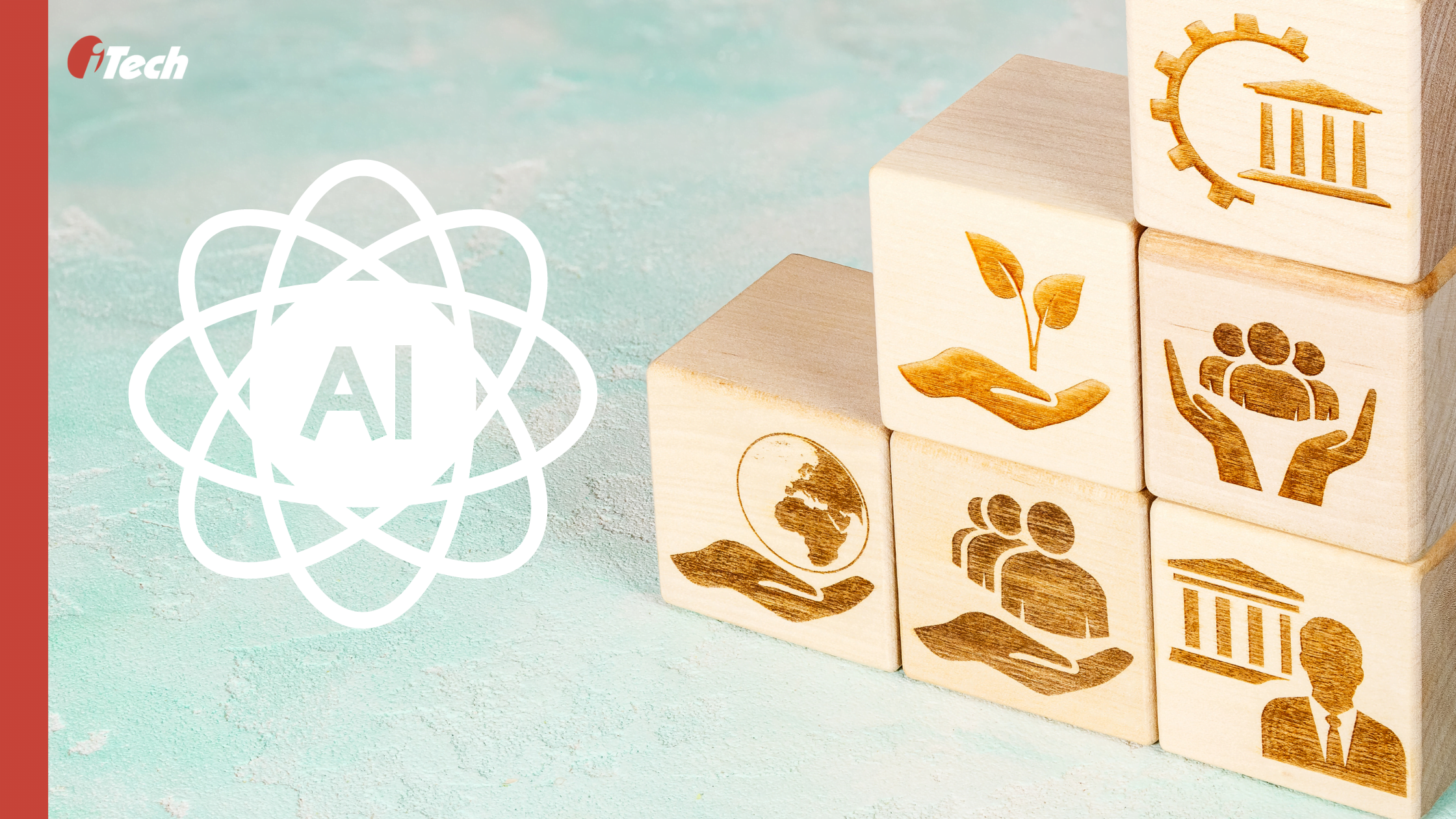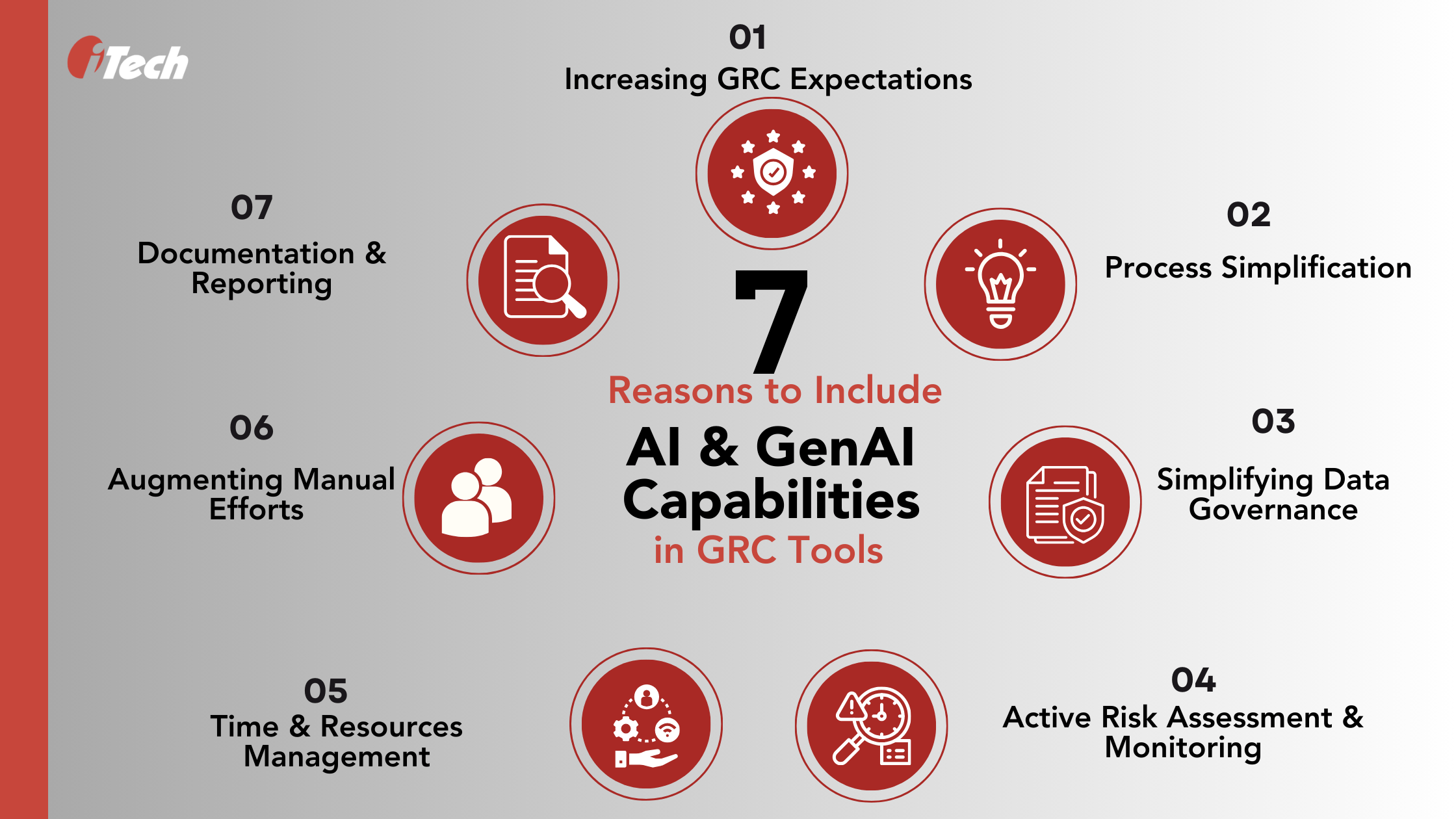AI Integration in GRC Tools Will Become A Commonplace in 2024

When we talk about technological sophistication, every enterprise competes to be at the bleeding edge of trends. In 2023, GenAI took the world by storm despite initial hesitations about impending risks and a high-profile security breach that exposed personally identifiable information (PII). Surprisingly, in governance, risk, and compliance (GRC), both AI and GenAI hold tremendous promise. Both these technologies have massive capabilities when integrated into GRC tools to identify anomalies and unusual threat patterns that mostly go unnoticed by humans. GRC functions are also broadening in complexity and becoming knowledge and resource intensive. Therefore, AI adoption is bound to explode in the GRC space in 2024 to outpace risks from dynamic shifts in global regulatory and compliance requirements.
It’s barely been a month since International Privacy Week and IBM’s crucial discussion around ‘Rebuilding Trust’ with AI at the World Economic Forum. The chatter around AI from the privacy and data security viewpoint is still fresh and riveting. It’s time to overcome apprehensions and embrace the need to add AI capabilities to GRC tools. IBM’s Chairman, Arvind Krishnan, said at the Davos event that by 2034, AI users can expect $4 trillion in annual productivity. IBM’s Chief Privacy Office was renamed the Office of Privacy and Responsible Technology to accommodate innovations in GenAI and the evolution of AI Ethics Board, which now includes principles, practices, and product governance frameworks. OpenPages with Watson and Watsonx have been instrumental in empowering customers to harness the emerging roles of AI and GenAI with responsibility and accountability.
IBM’s AI milestone 2024 is to introduce more advanced models with new application enablement and governance features within Watsonx to speed up AI development and deployment. In 2023, the Watsonx was released with –pre-built models, workflows, toolchains, and multi-modal neural architectures to leverage foundational models. The release of Watsonx.data, Watsonx.ai, and Watsonx.governance enabled the use of foundation models beyond natural language processing. More general AI forms will emerge in the future to support reasoning and common-sense knowledge. IBM’s well-planned and defined AI roadmap until 2030 represents the limitless possibility of scaling the use of AI rather than viewing it as a risk factor.
Insights from the IBM Global AI Adoption Index 2023 found nearly 42% of enterprise-scale firms actively implemented AI in their business. While about 40% of the respondents are still in the experimental stage. However, 59% of companies already deploying or exploring AI are most likely to invest in technology. The tech giant’s AI milestone represents the opportunity to scale the use of AI rather than viewing it as a risk factor.
Governments and businesses need not wait longer to rope in the AI advantage beyond testing and examination. The AI regulation efforts from the U.S. Congress and the Biden Administration’s Executive Order regarding the safe, secure and trustworthy use of AI give the state and local governments more confidence. Allowing them to build on these rules and extend governance and compliance obligations across jurisdictions.
We can validate the need for AI features in accelerating GRC tasks if you are still skeptical. Below are some of the areas where AI can be an enormous value-add in GRC tools and platforms:
Seven Reasons to Include AI & GenAI Capabilities in GRC Tools

- Increasing GRC Expectations: We may have to reiterate the mushrooming complexities across the GRC domains. Enterprises and businesses are flooded with new data governance and privacy challenges every year. Changes in compliance and regulatory expectations at both global and local levels challenge organizations to spend lots of time seeking guidance from experts with intricate and factual knowledge of the latest rules. There is no shortage of barriers to understanding risks, compliance violations, business and technological disruptions, and privacy components. Although companies attribute talent and skill gaps, data complexity, and ethical concerns as the main barriers to AI adoption, GRC teams and professionals can significantly benefit from AI. For example, OpenPages with Watson helps advance trust from principle to practice for upholding an organization’s GRC commitments. It also helps promote a culture of risk recognition and compliance awareness.
- GRC Process Simplification: Understanding complex GRC tasks is one part of the process. Execution is another part that requires a tremendous amount of process and workflow simplification. AI-led automation in GRC tools helps handle mundane, repetitive tasks in minutes and enhances time to value with configurable workflows. By leveraging advanced cognitive and analytics technologies, AI automation helps customize user interfaces to implement simple and user-friendly features for navigation and reporting. Watson’s natural language translator allows live translations for end-users using different languages. OpenPages with Watson’s AI automation includes a calculation engine on the user interface without any coding experience. Moreover, the solution helps connect employees to critical policies in their native language, improving their risk and compliance exposure.
- Simplifying Data Governance & Collection: Data is the driving force behind making organizations decision-driven and strategically handling their GRC needs. Using AI-led automation in GRC tools means users can pull out vast volumes of data from various sources. They can leverage NLP capabilities to identify only relevant information and structure it in formats that make it easy to understand and consume data to execute GRC tasks. Risk teams can leverage the new capabilities in the Watson tool to detect risk patterns from reports because of the data consistency and accuracy.
- Active Risk Assessment & Monitoring: The AI engines enable automated risk assessments, and the in-built predictive insights provide an overview of risks across organizations. Automated risk assessments and monitoring help predict potential threats and use advanced machine learning capabilities to implement risk mitigation strategies. AI-driven GRC tools also help screen changes in the regulatory and compliance policies to check if the organizational processes are in line with its regulations.
- Time & Resources Management: Implementing AI and GenAI-led GRC tools results in significant time and resource savings. The task automation process is one way of efficiently scaling GRC efforts without manual complexities or risk of error-ridden processes. OpenPages with Watson helps streamline workflows and enhances the overall productivity of cybersecurity teams.
- Augmenting Manual Efforts: GenAI is growing in popularity as a tool that works with human staff to enhance their efficiencies and focus on more value-oriented tasks. For GRC workflows, GenAI is a valuable tool for the GRC team to augment their efforts in proactive threat detection and response. GenAI’s ability to rapidly analyze threat patterns and detect anomalies helps improve the analytical process of human professionals. Additionally, cybersecurity experts spend their time and attention performing more intricate tasks by delegating routine and repetitive activities with AI-driven GRC tools. The Watson Assistant, a chatbot service within the OpenPages with Watson solution helps auditors by answering their internal audit queries and allows seamless engagement between users and the platform.
- Documentation & Reporting: GRC teams can automate the documentation process by ensuring that every incident, analysis, or response rate is recorded accurately for further analysis and investigation. This improves the traceability of cybersecurity activities and helps create and maintain comprehensive SOPs, compliance documents, and training manuals. Users of OpenPages with Watson can experience improved quality of description and labeling. The Watson Discovery feature allows the smart document understanding feature to integrate internal audit methodology documents using the Watson Assistant.
GRC Tools Must Give the Confidence to Operationalize AI
Implementing any enterprise GRC platform minimizes the manual processes and antiquated methods involving siloed data and systems. OpenPages with Watson helps operationalize AI confidently and build compliance that are aligned to regulatory requirements. Additionally, organizations must build on that confidence to scale AI into numerous risk and compliance processes with trust and transparency.
GRC processes can be made accessible to your stakeholders by leveraging AI-driven GRC tools like OpenPages with Watson’s ‘no-training’ user interface (UI) and high configurability.
Almost 70% of global banking institutions use Watson, and more than +100 million users get the work done by operationalizing AI. If you want to be ahead of your GRC goals and successfully implement relevant models to automate GRC workflows, our team can provide deeper insights about OpenPages with Watson.
Connect with us today to learn more about tapping our expertise in risk management and compliance.
